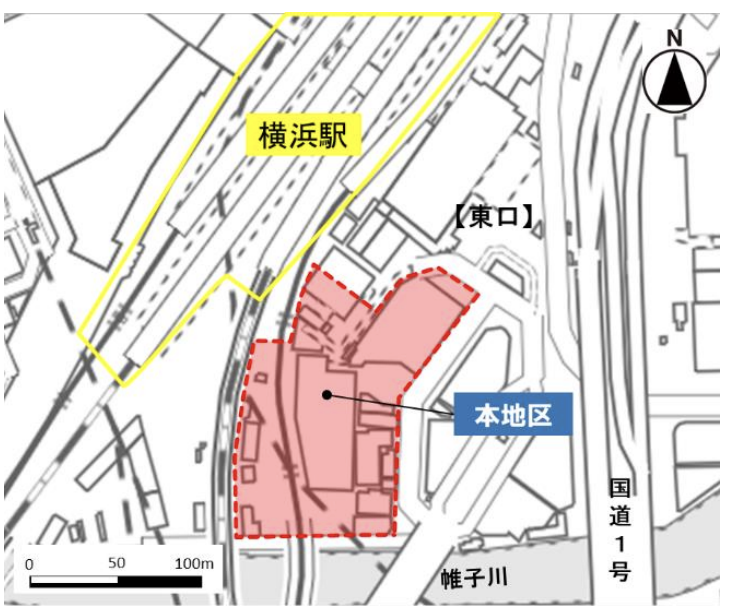One of the most important factors in successful real estate investment and rental management is the selection of an appropriate property management company. Profitability of the same income-producing property can vary greatly depending on which management company is selected.
However, many people may have questions such as "What exactly does a property management company do?", "What criteria should I use to select a management company?", and "What is the market rate for management fees?
In this article, INA & Associates, Inc. will explain in detail the basic roles of a property management company, key points on how to choose one, and the market rate of commissions, based on our practical experience. If you are about to start investing in real estate or are not satisfied with your current management company, please read to the end.
What is a property management company? Basic Roles and Duties
Definition of a property management company
A property management company is a company that specializes in the management and operation of rental properties on behalf of property owners. If the number of units managed exceeds 200, the company is required to register with the Minister of Land, Infrastructure, Transport and Tourism, increasing transparency and credibility in the industry.
Property management companies are categorized as condominium management companies, building management companies, and rental management companies, but this article will focus mainly on rental management companies. Rental management companies play an important role in supporting stable rental management by providing a living environment that satisfies both owners and tenants.
Main Business Activities
The operations of property management companies can be broadly classified into two categories : rental management operations andbuilding management operations.
Rental Management
Rental management operations are centered on direct relations with tenants. Specifically, these services include the following
In tenant solicitation and customer service, a series of operations are performed, from soliciting tenants when vacancies occur, to handling previews, screening tenants, and concluding lease contracts. Another important part of our work is the planning of effective recruitment strategies and advice on appropriate rent setting.
In the rent management business, we collect monthly rent income on behalf of the owner, remind the owner of delinquent rent, and remit rent to the owner. It also includes liaison with rent guarantee companies and legal responses to delinquent renters.
In the contract management business, we are in charge of lease contract renewal procedures, handling changes to contract terms, attending at the time of contract termination, and settling security deposits.
In tenant relations operations, we respond to tenant inquiries and complaints, resolve neighborhood problems, and handle emergencies 24 hours a day, 365 days a year.
Building Management Operations
Building management operations are designed to maintain and improve the asset value of properties.
Daily management services include periodic cleaning of common areas, inspection and maintenance of facilities, statutory inspections of firefighting equipment, and maintenance inspections of elevators.
In repair work, we provide a wide range of services, from responding to repair requests from tenants, to planned facility renewal, to planning and implementation of large-scale repair work.
In restoration work, we inspect rooms when tenants vacate, arrange for restoration work, and settle construction costs.
Differences from Real Estate Brokerage Companies
Let us clarify the differences from real estate brokerage companies, which are often confused with real estate management companies.
| Item | Real estate management company | Real estate brokerage company |
|---|---|---|
| Main business | Ongoing property management and operation | Brokerage of sales, purchases, and leases |
| Profit Structure | Management fee (approx. 3-5% of rent) | Brokerage commission (within legal limits) |
| Contract Term | Long-term continuous contract | Until the transaction is completed |
| Scope of services | General services from moving in to moving out. | Up to the conclusion of a contract |
Real estate brokerage firms mainly act as "intermediaries" for sales, purchases, and leases, and do not provide ongoing management services after the conclusion of a contract. On the other hand, property management companies specialize in long-term management services after the conclusion of a contract.
Advantages of Consigning Real Estate Management and Commission Rates
Necessity of Outsourcing Management
Outsourcing to a property management company is essential for real estate investment and rental management. Self-management is an option, but in reality, many owners use a property management company.
Relief from a huge amount of management work
There are more tasks involved in rental management than you can imagine. Starting with recruiting new tenants, the work includes previews, contract procedures, rent collection, handling complaints, resolving facility problems, attending move-outs, and arranging for restoration work.
In particular, emergency services must be available 24 hours a day, 365 days a year. Leakage problems late at night, equipment breakdowns, and neighborhood problems require a quick response, and it is not practical for an owner with a day job to handle these issues on his or her own.
Appropriate response with expertise
Property management also requires legal knowledge. Without specialized knowledge, it is difficult to properly respond to issues such as drafting lease agreements, handling security deposits and key money, classifying the burden of restoration costs, and legal procedures for collecting delinquent rent.
Management companies have staff with extensive experience and expertise to handle these matters, enabling them to properly manage the property while avoiding legal risks.
Efficient expansion of investment scale
Self-management is physically impossible when owning multiple properties or investing in distant properties. By outsourcing to a management company, you can expand your investment area without geographical constraints.
Management Fee Rates and Breakdown
General commission rates
The typical commission rate for property management is approximately 3-5% of rent income. It varies depending on the age of the property, its location, and the degree of difficulty of management.
| Property Type | Commission rate | Features |
|---|---|---|
| Newly built/newly constructed properties | 3-4% of the total | Relatively little management work |
| General properties | 5% (of the total) | Standard management services |
| Older properties | 5~7% (5~7%) | Many repairs and claims handling |
| Sublease | 10-20% of the total | Management company bears the vacancy risk |
Specific example of commission calculation
Using a property with a monthly rent of 500,000 yen as an example, let's compare the difference in management fees.
In the case of 5% management fee
Monthly management fee: 500,000 yen x 5% = 25,000 yen
Annual management fee: 25,000 yen x 12 months = 300,000 yen
In the case of a 3% management fee
Monthly management fee: 500,000 yen x 3% = 15,000 yen
Annual management fee: 15,000 yen x 12 months = 180,000 yen
Although there is a difference of 120,000 yen per year, it is important to make a comprehensive judgment of management quality and service content.
Scope of services included in the fee
Standard services included in the management fee are as follows
Basic management services
Rent collection and remittance, handling of tenants and complaints, contract renewal procedures, witnessing tenants moving out and settling security deposits
Building management services
Daily cleaning and inspection duties, arrangement of minor repairs (up to a certain amount), arrangement of statutory inspections
However, it is important to clarify the scope of work before signing a contract, as there are often separate costs for large-scale repair work, facility renewal, advertising, and restoration work.
Concept of Cost Performance
Although management fees are a definite cost, they are not an expensive investment when the benefits of choosing the right management company are taken into consideration.
A good management company will maintain high occupancy rates and maximize profitability through appropriate rent setting. They also maintain the property's asset value through systematic maintenance, ensuring long-term stability of income.
It is important not to choose a management company based solely on low fees, but to evaluate the quality of services provided and their contribution to profitability in a comprehensive manner.
How to Select a Management Company without Failure|7 Important Points
It is no exaggeration to say that successful rental management depends on the selection of an appropriate management company. The profitability of the same property can vary greatly depending on the management company. Here, we will explain in detail the important points to consider when selecting a management company based on our practical experience.
1. Occupancy rate of managed properties must be 95% or higher
The occupancy rate is the most important indicator of a management company's ability. A good management company always maintains a high occupancy rate of 95% or more.
The basic method of checking the occupancy rate is to contact the management company directly, but the following points should also be noted.
Confirm the method used to calculate the occupancy rate.
Ratio of occupied units to total units, point of calculation (annual average, end of month, etc.), range of properties covered (all properties, specific area, etc.)
Confirm the reasons for the high occupancy rate
Availability of effective recruitment strategies, ability to set appropriate rents, ability to make proposals that maximize the attractiveness of the property, efforts to improve tenant satisfaction
Management companies with occupancy rates below 90% are likely to have problems with their ability to attract customers, and should be carefully considered.
2. Specific proposals for vacancy countermeasures
It is important to select a management company that can propose concrete measures to be taken when vacancies occur. Choose a company that can present concrete improvement measures based on data, rather than just an abstract "we'll do our best" response.
Examples of excellent management company proposals
Proposals for appropriate rents based on market research, strategies for differentiation from competing properties, proposals for interior remodeling and facility updates, changes in recruitment strategies based on target demographics, and optimization of Internet advertising.
Examples of questions to check
What should we do if the vacancy period exceeds three months? What should we do if the rent is higher than the market rate in the neighborhood? What are the measures to be taken when a property is older than its age?
A management company that can provide concrete and feasible answers to these questions can be expected to provide actual vacancy countermeasures.
3. Number of units under management must be 10,000 or more.
The number of units managed is an important indicator of a company's stability and track record; a company that has managed more than 10,000 units has accumulated a wealth of experience and know-how, and is considered highly capable of handling various problems.
Advantages of having a large number of units under management
Appropriate response based on a wealth of experience, cost efficiency due to economies of scale, establishment of an organized work system, and stability of financial base
However, if the number of units managed is too large, it is important to check the number of units managed per staff member, as this may result in neglect in responding to individual properties.
4. Prompt response system in the event of problems
Trouble can occur unexpectedly in rental management, and it is important to choose a management company that has a 24-hour, 365-day emergency response system in place.
Response system to check
Emergency contact system (24-hour response or not), scope of problems that can be handled, network of partner companies, estimated response time, and clear cost burden.
Common emergency problems
Water leakage/leakage accidents, malfunctions of electrical and gas facilities, lost keys/lockouts, neighborhood problems/noise problems, problems between tenants
Check in advance whether the company has a system in place to respond promptly and appropriately to these problems.
5. Quality of response and expertise of the person in charge
The quality of the person in charge is directly related to the quality of management. It is important to choose a management company with knowledgeable and responsive staff.
Characteristics of a good representative
Possession of real estate-related qualifications (e.g., licensed real estate contractor, certified rental property manager), abundant practical experience, prompt and courteous communication, ability to make proposals and solve problems, owner's point of view
How to evaluate your staff member
Quality of response during initial interview, accuracy of answers to questions, specificity of proposals, speed and accuracy of communication
Compatibility with the person in charge is also an important factor. As a partner in building a long-term relationship, choose a company with a reliable contact person.
6. Confirm customer satisfaction and track record
Satisfaction of existing customers is an important indicator of a management company's ability. If possible, check actual customer testimonials and reputation.
How to Confirm Satisfaction
Results of customer satisfaction surveys, referrals/recommendations from existing clients, word of mouth/reputations on the Internet, and evaluations/awards in the industry.
Achievements to be confirmed
Management retention rate (low cancellation rate), occupancy rate trends, rent delinquency rate, satisfaction with complaint handling
A management company that maintains a high level of customer satisfaction is considered to be continuously providing high quality services.
7. Appropriate management fees
Be wary of extremely low management fees. If the fee is significantly lower than the market price, there may be a problem with the quality of service.
Risks of too low fees
Necessary work is omitted, emergency response is delayed, the person in charge lacks experience, and the company's financial base is unstable.
Selecting a management company that provides solid services with reasonable fees will lead to stable earnings over the long term.
Checklist for Selecting a Management Company
Use the checklist below to comprehensively evaluate a management company.
| Evaluation Items | Points to check | Evaluation |
|---|---|---|
| Occupancy rate | Is 95% or more maintained? | Vacancy rate |
| Are there any concrete proposals for vacancy countermeasures? | Are there any concrete proposals? | Number of units under management |
| Number of units under management | Do you have a track record of more than 10,000 units under management? | □ Emergency response |
| Emergency response | Do you have a 24-hour emergency response system? | Is there a 24-hour emergency response system? |
| Person in charge | Is the expertise and quality of response sufficient? | Customer Satisfaction |
| Customer satisfaction | Do you have a high reputation for customer satisfaction? | Is the quality of service high enough? |
| Commissions | Is it set at an appropriate level? | □ Is the fee set at a reasonable level? |
By selecting a management company that meets all the criteria, you can entrust your rental management with peace of mind.
How to find an effective management company
In order to find the right management company, it is important to combine and compare multiple methods. Below are some of the main ways to find an effective management company.
1. Referrals from financial institutions
Referrals from financial institutions that provide real estate investment loans are one of the most reliable methods. Financial institutions tend to refer management companies with a proven track record because they focus on the profitability of the loan recipient.
Advantages
Reliability through passing the financial institution's screening process, smooth procedures in coordination with financing, and long-term relationship building.
Cautions
Options may be limited, possibility of introductions based on relationships with financial institutions
2. Use of bulk comparison sites
By using bulk comparison sites for property management companies, information on multiple companies can be efficiently collected.
Major comparison sites
HOME4U, Rental Management Window, Condominium Management Comparison Site
Key Points of Utilization
Use multiple sites to gather information, use the quality of the response after requesting information as a factor in evaluating the quality of the company, and use the response to sales calls as a factor in judging the quality of the company.
3.Utilize real estate industry networks
It is also effective to listen to the real voices of actual users through real estate investor communities andindustry seminars.
Information Gathering Opportunities
Real estate investment seminars, study groups for owners, social gatherings for real estate investors, online communities
4. Research community-based management companies
A community-based management company in the property's location is also an important option. They are familiar with the characteristics of the area and can be expected to provide attentive service.
Advantages of a Community-Based Company
Familiarity with local rental demand, local partner network, light footwork, ability to make proposals based on local characteristics
Conclusion
Selecting a property management company is an important decision that will determine the success of your rental business. We hope that you will carefully consider the points introduced in this article.
Reconfirmation of Important Points
1. Select a company with a track record of 95% or higher occupancy rate.
2. Select a company that can propose specific vacancy countermeasures.
3. Confirm the track record and stability of more than 10,000 units under management
4. Confirm that the company has a 24-hour emergency response system
5. Evaluate the expertise and quality of response of the staff in charge
6. Confirm the high level of customer satisfaction based on the company's track record
7. Determine the balance of service quality with appropriate management fees.
For Successful Rental Management
Establishing a long-term partnership with the right management company will help you realize stable earnings and increased asset value. Make your choice based on overall service quality, not just low fees.
Next Actions
1. Request information from multiple management companies.
2. Evaluate the person in charge by conducting an actual interview.
3. Check the testimonials and track record of existing clients.
4. Review contract terms and conditions in detail.
5. Review the management status on a regular basis
INA&Associates Inc. provides high quality property management services with the highest priority on improving the asset value of owners and securing stable revenue. If you have any questions about choosing a management company, please feel free to contact us.
Frequently Asked Questions (FAQ)
Q1. Are there any precautions when changing management companies?
A1. It is possible to change the management company, but please note the following points.
Confirmation of the contract term
Conditions for cancellation of the current management contract, notice period for cancellation (usually 1-3 months in advance), and whether or not there is a penalty fee.
Takeover operations
Transfer of tenant information, transfer of security deposits and guarantees, handling of unpaid rent, transfer of repair history
Notification to tenants
Advance notice of change of management company, notification of new contact information, procedures for changing rent transfer address
Cooperation between the old and new management companies is important for a smooth transition.
Q2. Are there any fees other than the management fee?
A2. In addition to the management fee, the following costs may also be incurred.
Costs related to tenant recruitment
Advertising expenses (1 to 2 months' rent), brokerage fees (1 month's rent)
Maintenance-related expenses
Repair work costs, facility renewal costs, legal inspection costs
Other Expenses
Contract drafting fees, renewal fees, administrative fees at the time of cancellation
Clarify the cost structure before signing a contract to avoid unexpected expenses.
Q3. Should I outsource to a management company even for small properties?
A3. We recommend outsourcing to a management company even for small properties.
Advantages of Outsourcing to a Small Property Management Company
Appropriate response through expertise, quick response in case of emergency, avoidance of legal risks, and reduction of time burden
Cost Considerations
Management fees are a percentage of rent income, so the burden is reasonable even for small properties. Consignment is advantageous when considering the risk cost of self-management.
However, self-management is also an option for properties that are relatively easy to manage, such as a studio for singles near one's home.
Q4. What should I do if I am dissatisfied with the management company's response?
A4. We recommend the following step-by-step approach
First step: direct request for improvement
Organize specific problems in writing, meet with the person in charge to demand improvements, and clarify the deadline and methods of improvement.
Second step: Consultation with upper management of the company
Consult with the person in charge's supervisor or branch manager, or use the Customer Service Center at the head office.
Third step: Consideration of contract review
Negotiate changes to the terms and conditions of the management contract, or consider changing to another company.
Final step: Termination of contract
Confirm conditions for termination of contract, select new management company
In order to resolve problems quickly, it is important to have a constructive dialogue based on facts and not on emotion.
Q5. Which is better, a major management company or a community-based company?
A5. Each has its own characteristics and should be selected according to the characteristics of the property and investment policy.
Features of major management companies
Nationwide network, extensive experience and know-how, organized work structure, systemized work flow
Characteristics of community-based companies
Deep understanding of regional characteristics, light footwork, flexibility, strong network with local vendors
Selection Guideline
Own properties in multiple areas: large management company; concentrate investment in specific areas: community-based company; luxury and special properties: highly specialized company
Ultimately, selection should be based on actual service quality and track record rather than company size.

Daisuke Inazawa
Representative Director of INA&Associates Inc. Based in Osaka, Tokyo, and Kanagawa, he is engaged in real estate sales, leasing, and management. He provides services based on his extensive experience in the real estate industry. Based on the philosophy that “human resources are a company's most important asset,” he places great importance on human resource development. He continues to take on the challenge of creating sustainable corporate value.

.png)













